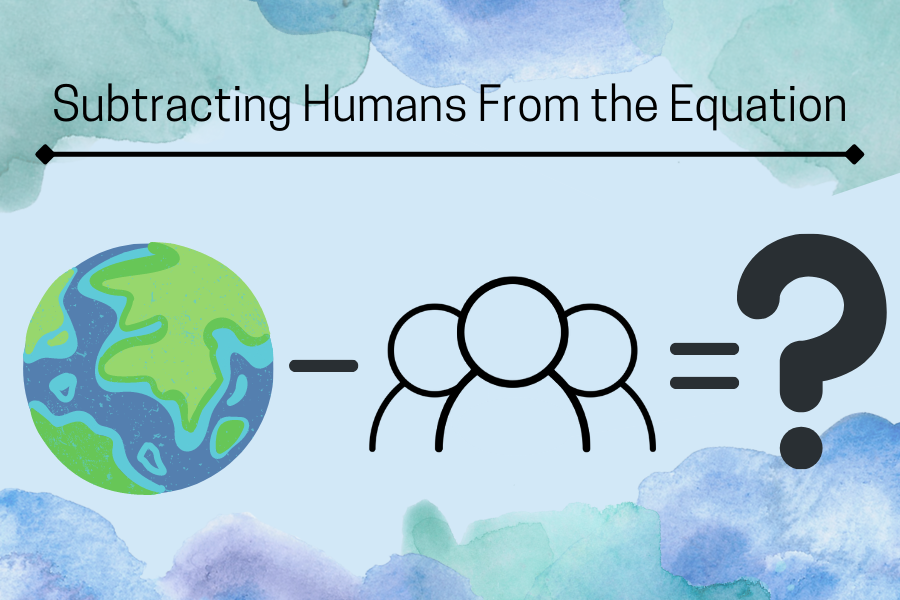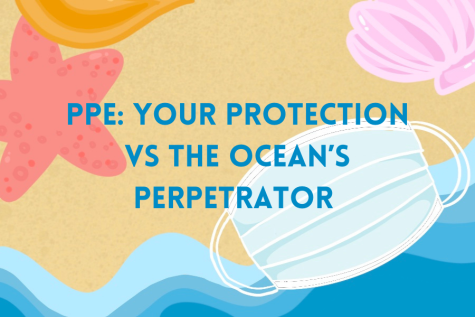Subtracting Humans from the Equation
The planet around us is not invincible. The footprint that humans have made on Earth is almost immeasurable, and in the past decade, the damage our actions have caused has become much more pronounced. As a result, increased greenhouse gas emissions and their detrimental effect on our climate have become a large part of current politics. Despite rising advocation for change and new technological advances towards this goal, society still lacks solutions for these evergrowing issues. However, in light of COVID-19, an air-borne disease that has led to more than 1.5 million worldwide deaths, humanity has gone into lockdown. As a side effect, scientists have observed an unforeseen decrease in global pollution that has come with reduced industrial production, worldwide transportation, and global travel efforts.
Reduction Of Industry
First, let’s take a look at what effect reduced industry has had in large cities around the world. Overall, with lower demand for coal and oil, industrial production has seen a major decrease in global greenhouse gas emissions. By definition, greenhouse gases are particles of a gas that are able to absorb heat in the atmosphere. Because of the climb in global production rates, at the expense of fossil fuels such as coal, the concentration of these gases has increased rapidly. Increasing greenhouse gases have been proven to be the root of global warming, and they are a potential climate catastrophe. However, since the start of the COVID-19 pandemic, there has been an 8.8% worldwide decrease in fossil fuels that release chemicals such as CO₂ and N₂O into the atmosphere. Accordingly, this decline in non-renewable resources has resulted in a substantial improvement in air quality. For example in China, a 36% drop in coal consumption has caused a 25% decrease in the nation’s global carbon emissions. Additionally, one of the more dangerous chemicals produced by fossil fuels called nitrogen dioxide (NO₂) has seen a crucial downward trend. In Europe, this gas, which is oftentimes correlated with acid rain and respiratory issues, has seen as much as a 30-50% decrease.
The reduction in fossil fuel use has also acted as an important factor in the improvement of water conditions. In developing countries, such as India, industrial waste isn’t always properly disposed of and is oftentimes arbitrarily thrown into vital water sources without being properly purified. However, with less waste being cycled through industry, large waterways such as the Ganga River have become safer for human consumption. Though this has been contrasted by the increase in plastic pollution that has come with new medical supplies, such as masks and gloves, the decrease in most industrial processes has proved to be a very positive change in terms of air and water quality around the world.
The Decrease in Travel Efforts
Decreased industry production is not the only impact of COVID-19. We intimately know how much our traveling has been reduced, be it the inability to go to the Hamptons for spring break, or the incapability to take an overseas plane ride to explore the world. Daily, many places globally rely on tourists and their pocket money to finance their economy. With governmental restrictions at the beginning of COVID-19, there was at one point a 96% decrease in airplane travelers, and with that decline, touristic sites such as Phuket in Thailand went from an average of 5,452 daily visitors to virtually none. Though this is of course very harmful to sightseeing-based companies, it has proven to be a major improvement for the environmental conditions at locations that are often plagued with litter and garbage. The reduction in aviation fuel consumption has added to the decrease in global carbon emissions as well. Isolation and subsequent improvement of water quality in many of these locations have fueled the return in biodiversity in some locations. For example, the Bay of Bengal and Venice have seen the miraculous return of dolphins to their waterways.
Another result of less tourism is illustrated by the decrease in noise pollution. Though it may seem obvious, the noise that everyday activities produce is incredibly loud, but people often ignore the health-related issues that can arise from these sound waves. Cardiovascular, sleep, and physiological problems are proven to result from overexposure to the noise that too many of us believe is normal. Now with the depression of tourism around the world, the effects of this pollution category have lessened greatly. All of this goes to show that when the environment is left deprived of human intervention, major improvements come more rapidly than one would imagine.
Reduced Transportation
A further factor that has greatly impacted environmental health is the overwhelming decrease in transportation efforts of people all around the world. With nowhere to go, and major daily functions such as work, school, and restaurant services finding accommodations online or from a distance, this major part of everyday life has been massively diminished. For instance, freeway traffic alone has declined by over 52.4%, and there has also been a 96% reduction in air travelers, which shifted to 73% by mid-summer last year. This drastic decrease in air travelers has reduced air traffic by 40.5% and can be held accountable for some of the major greenhouse gas reductions. Public transport has also taken a major hit as people avoid crowded public spaces. There has been a 66% rider reduction on Metrobus, and a 90% reduction on Metrorail. This trend can be again attributed to the large number of citizens now working from home to ensure their safety and the safety of others. It is expected that these trends will continue for the foreseeable future, and with them, we can expect that carbon emissions will keep lessening as well.
Conclusion
All in all, the shift in these variables has provided extensive new data concerning our environment. Many hope that these observations might prove to be a perfect starting point for a renewed push for societal awareness for earth’s dying environment, and one for a large-scale societal shift towards a more sustainable way of life. However, life under COVID is not sustainable for many people and there have been significant negative economic impacts. It is impossible for the world to flourish under isolation, and therefore, it is a necessity to utilize alternative methods of greenhouse gas reductions to ensure that our planet remains healthy enough to sustain life.
Be it through recycling, petitioning for laws that will put limits on corporate greenhouse gas emissions, or driving a more fuel-efficient car, you are the change we need. Learning to dispose of waste through composting, recycling, and wastewater treatment, and learning to reuse materials is a big way to shift change in our favor. In addition, transferring to renewable energy, such as solar, hydro, and wind power, will not only help reduce pollution but will also conserve the limited amounts of nonrenewable materials we have. Even just small actions such as using public transportation, unplugging electrical devices, and using reusable bags at the grocery store can accumulate to truly make a difference and can even slowly work to match the pandemic’s environmental impacts.
A big catalyst for the spread of disease results from our proximity to animals, as deforestation and climate change lead to habitat loss that pushes contagious organisms closer to human beings. This just goes to show that the harm we inflict on the environment and society is what will eventually cause us to lose control of our sensitive home. In conclusion, now is the perfect time to take advantage of all the improvements that we have seen in the past year to convert ourselves to a more sustainable way of life, and to continue funding research so that instead of working against our loving and caring habitat, we can begin to live in harmony with it.
Works Cited
“Carbon Pollution from Transportation.” United States Environmental Protection Agency, www.epa.gov/transportation-air-pollution-and-climate-change/carbon-pollution-transportation. Accessed 26 May 2021.
Conzachi, Karlie. “What you can do to reduce the environmental impacts of COVID-19.” University of Colorado Boulder, 13 Nov. 2020, www.colorado.edu/ecenter/2020/11/13/what-you-can-do-reduce-environmental-impacts-covid-19. Accessed 26 May 2021.
Ewoldsen, Beth, editor. “COVID-19 Trends Impacting the Future of Transportation Planning and Research.” The National Academics of Sciences, National Academy of Sciences, 17 Aug. 2020, www.nationalacademies.org/trb/blog/covid-19-trends-impacting-the-future-of-transportation-planning-and-research. Accessed 26 May 2021.
Harvard School of Public Health. www.hsph.harvard.edu/c-change/subtopics/coronavirus-and-climate-change/. Accessed 26 May 2021.
Kim, Karl. “Impacts of COVID-19 on transportation: Summary and synthesis of interdisciplinary research.” Transportation research interdisciplinary perspectives vol. 9 (2021): 100305. doi:10.1016/j.trip.2021.100305
Montez, Roqua. “Climate change and COVID-19: Can this crisis shift the paradigm?” Berkeley News, US Regents, 27 Apr. 2021, news.berkeley.edu/2020/04/27/climate-change-and-covid-19-can-this-crisis-shift-the-paradigm/. Accessed 26 May 2021.
Rume, Tanjena. “Environmental effects of COVID-19 pandemic and potential strategies of sustainability.” COVID-19 Environmental Impacts, 17 Sept. 2020. US National Library of Medicine, doi:10.1016/j.heliyon.2020.e04965. Accessed 26 May 2021.
“Overview of Greenhouse Gases.” EPA, Environmental Protection Agency, 14 Apr. 2021, www.epa.gov/ghgemissions/overview-greenhouse-gases.













